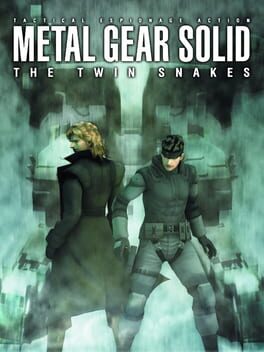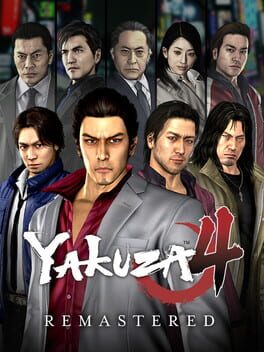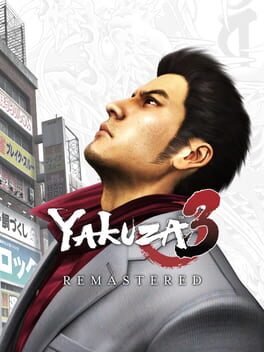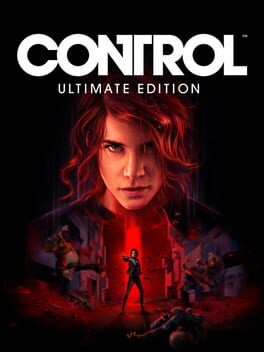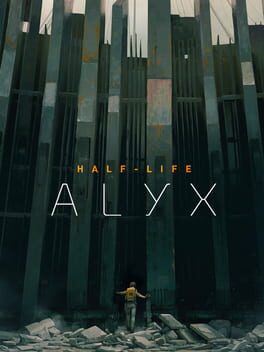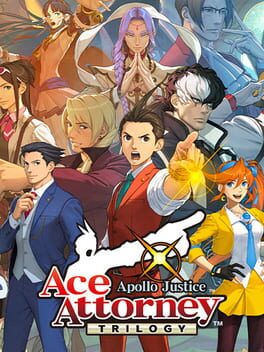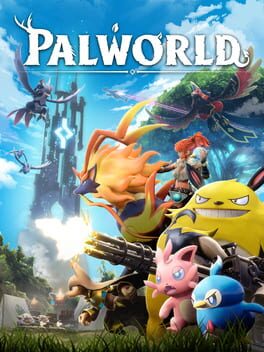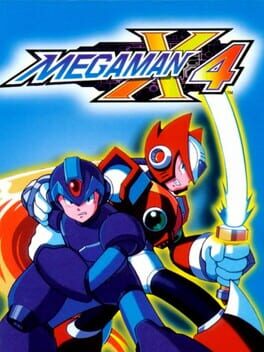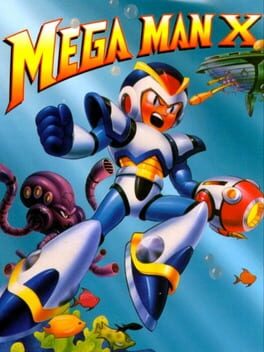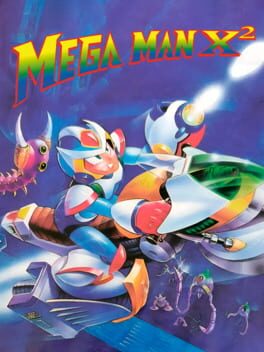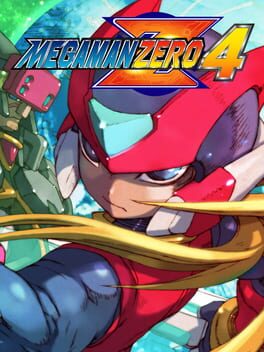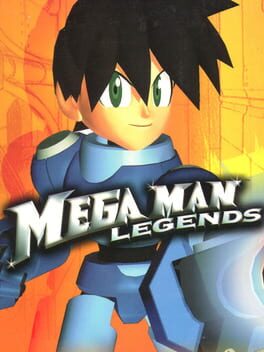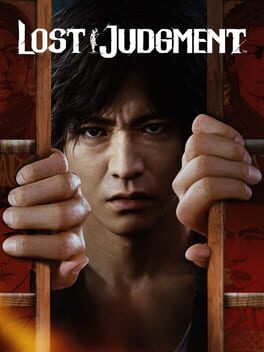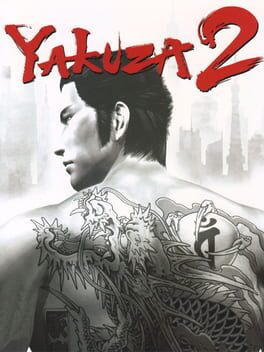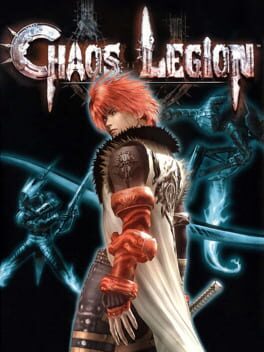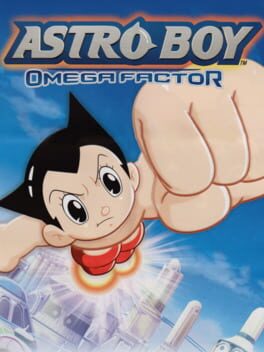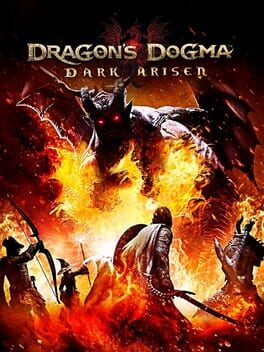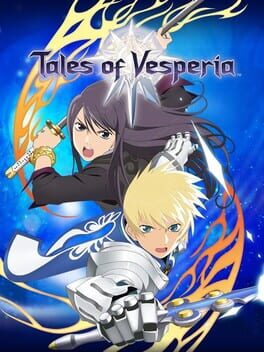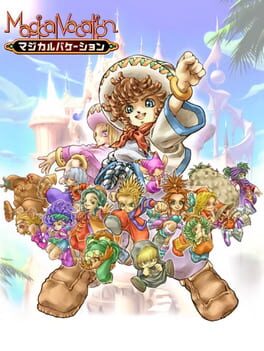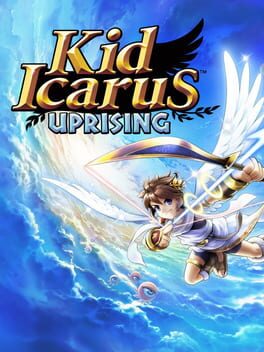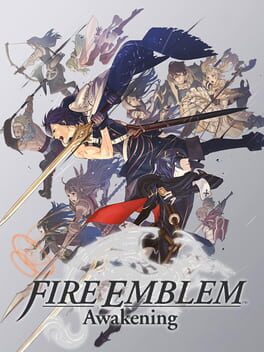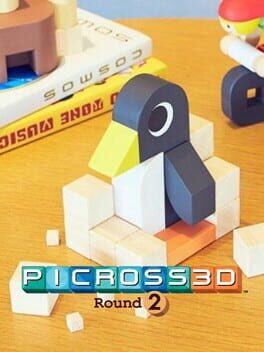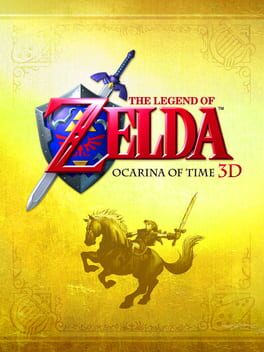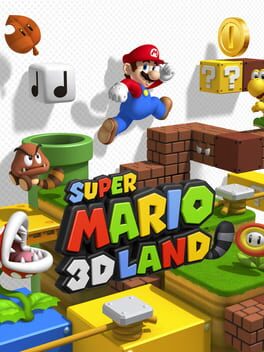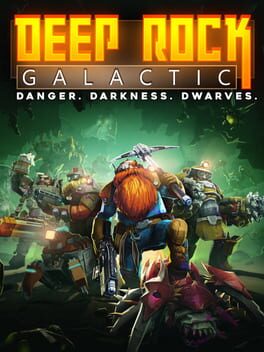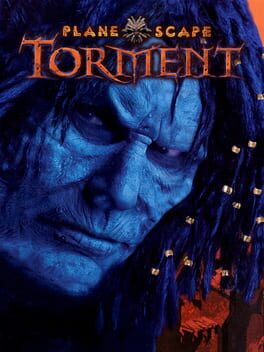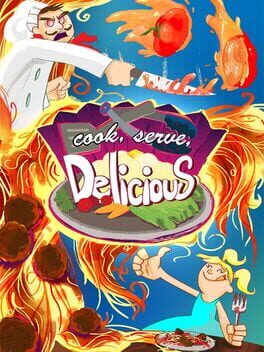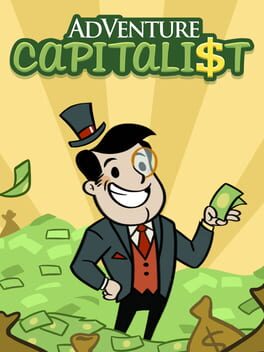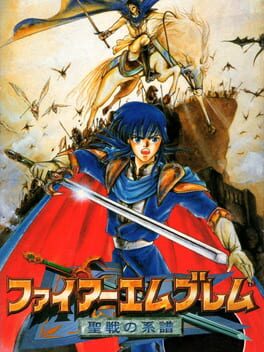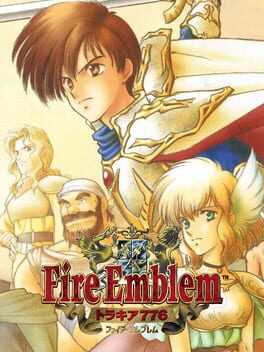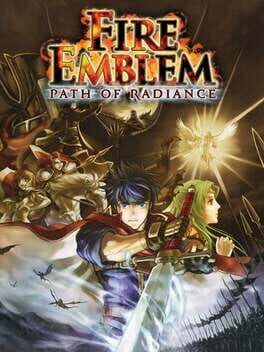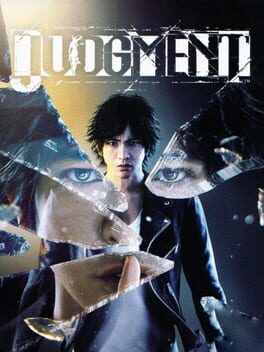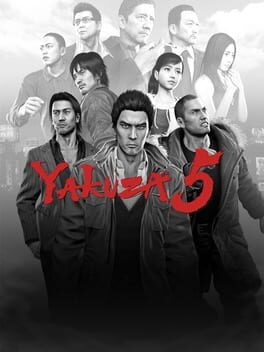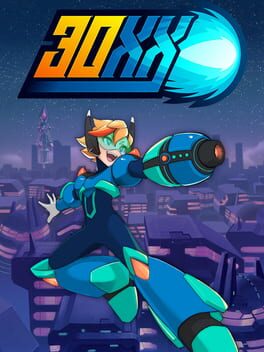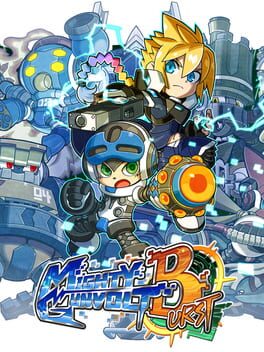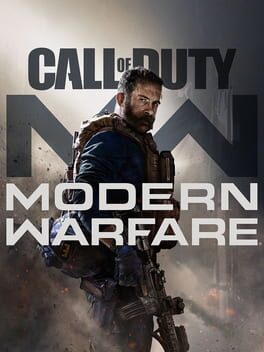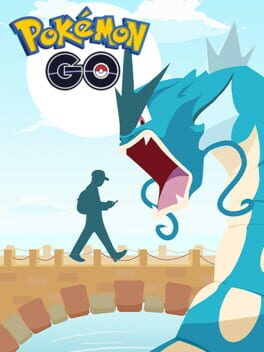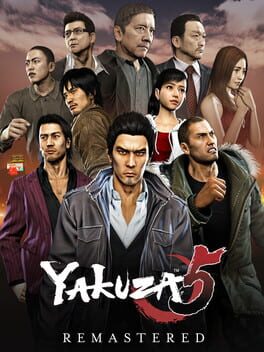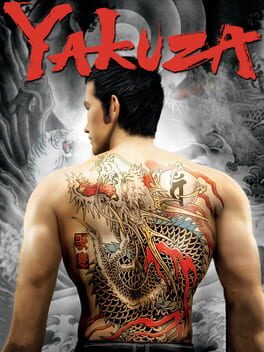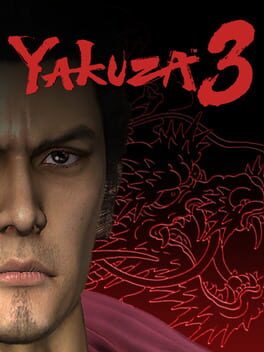silverus
282 reviews liked by silverus
Yakuza 4 Remastered
2019
“Power has always reigned supreme. Some use, while others become the used. Those who hold power are protected by it. Do you know why?”
“Because that is this country’s very foundation.”
Yakuza 4 is rough and sloppy. It’s got a ton of loose ends and demands some touching up. However, its deep and thorough reverence for series’ legacy can’t be overlooked. If you can look past the iffy occasional plotline, 4 is a thorough mechanical exploration of the series and its ideological framework. Broken men accustomed to a broken system, and yet punching their way up through pure meathead tenacity and physical brutality. Vested interest in noble samurai myth, modernized in Japan’s organized crime. Despite their many shortcomings, however, the four men atop the Millennium Tower hold a shared conviction.
Imbued with Koichi Yamadera’s swagger and nonplussed voice lines, Shun Akiyama exists as Kamurocho native. He doesn’t drop in to visit when things get rough, he’s lying around in his office during the dry patches when alleged virtuous yakuza come storming down the street. Akiyama’s seen it all, the absolute height of stature and the nadir of poverty. He’s not above sharing a couple beers with the homeless discarded around West Park. After three mainline games of steamrolling everything in sight as Kiryu, Akiyama is a nice refresher that places the world the men share in a new perspective. Suddenly, even the most petty and minute yakuza feuds become huge headaches. The ebb and flow of crime and commerce in Kamurocho is just something you get used to.
To the confusion of Kanemura’s goons, Akiyama isn’t in it for money. He’s got more of that shit than anyone could ever need. He’s like a god, strolling through the city knowing anyone that fucks with him gets the good old one-two capoeira treatment. Akiyama owes his life to the yakuza. Nishiki’s explosive departure back in ‘05 gave him an extra chance out of the life stripped away from him by the powers that be. And if that wasn’t good enough, good old Arai meted out his brand of justice to anyone looking to rob a desperate homeless man. Shun’s got nothing but respect for Arai – in his eyes, a spitting image of a future chairman. Just as the man gave him the means to pursue greater things, Akiyama’s in love with the idea of offering his own second chances to clients.
Taiga Saejima takes matters into his own hands. No bullshitting around, no asking questions until after things are done. He’s resilient as an ox, and chained down by his eighteen sins carried out all the way back in 1985. RGG Studio plays around with the idea of a good-natured yakuza grunt funneled through 25 years of The System. Saejima doesn’t have the charisma of an Akiyama or a kind of tactical mind like those moving him around as a chess piece, but he exists as an immovable wall. Saejima contrasts with Kiryu and Majima in the utter disgust he views his own legend with. He won’t look back ‘cause he cares way more about helping Sasai out than anything else, but the 18 men he took out haunt him every day. Detached civvies stand around Purgatory, treating him like a circus act – waiting for the tiger’s ferocity to dominate deathmatches. But Saejima is scared shitless of putting down another man ever again. Nobody understands the weight of life more than a man with a conscience that’s taken it.
Majima processes his trauma through his facade of the Mad Dog, an idea further touched on in Zero and Kiwami 2. The immense guilt from leaving his brother behind, and the fear of getting tricked by an asshole like Shibata again shares him shitless. But Saejima doesn’t really have that kind of tool. There’s nothing he uses to help him sleep at night, to him getting drunk on a delusion or distraction to help him sleep would mean he’s forgotten the eighteen lives he believes he’s stolen, even if just for a night.
Guy wanted nothing more than to save his stepsister and make sure she had a proper organ transplant, but ends up signing off his life to the Sasai Family, serving their beck-and-call. Despite always being under someone, Saejima chooses to be that way. He’s no charismatic magnet, but he attracts those around him willing to listen and change. Fundamentally, even if it’s for the sake of someone else, the man faces everything head-on.
Yasuko tells Tanimura his brother wanted to be a teacher. While he’s got no chance these days of being in the education system, Saejima naturally gravitates towards his mentor role. When he’s able to look past his guilt and self-loathing, the man’s able to pour into young men looking up to him. The Sodachi Dojo reinforces this idea and the way he encourages Kido to face shit head on is inspiring.
Tanimura’s a weird guy. If Akiyama is king of the night, running a good chunk of Kamurocho’s businesses, Tanimura’s here for the little nooks and crannies of the city. He knows he’s not a saint, and doesn’t care either. Meandering about day to day, knowing he can strong arm the healthy black market in the city. What’s there to say about him? He’s a dirty cop that fits the similarly coarse setting of the city. Compared to the seemingly morally righteous Arai, Tanimura doesn’t try to back up his shit with any kind of lofty speeches. He’ll empty a mag inches away from your head if it gets you talking. This fictionalized archetype of “bad cop” fits great with the storyline and adds a well-deserved extra dimension to Kamurocho.
Yakuza 4, and the series as a whole, is tied together by Kiryu’s conviction. He’s a pretty well-rounded guy by this point, living comfortably as a living legend and carrying on Kazama’s legacy through his orphanage. Kiryu’s inspirational words drive Yakuza 4: even the biggest pieces of shit can come around and learn to confide in others. Hamazaki, the guy who eats duck bones like potato chips and leaves bombs in suitcases, the man willing to surprise poke Kiryu in the gut, can still choose what little he has left of his life to shape a better world. Kiryu and Saejima are similarly bull-headed guys that have gone through it: losing their loved ones and being forced to adjust to a criminal world so incredibly drastically different from their glory days. It sucks, but Kiryu’s seen this shit before. After Yasuko croaks, Kiryu’s the one to push his ass into action.
“Too many people depend on us. Their dreams depend on us.”
Kiryu’s messed up quite a bit. He’s fundamentally split between his second life raising kids and the enormous Kanto criminal organization he pretty much walked straight out of. His routine of slipping in to help out when shit gets real bad and pulling out the whole rest of the year might be convenient, but the incredibly variable nature of his arrivals means the Tojo Clan is slowly dying. Daigo’s more aware of this than anybody else, and the rosy ideals of Kiryu don’t really convince him anymore. After the Hakuho Clan falling apart with Mine’s death, what else is he supposed to do? In his eyes, they’re pretty much screwed. And yet, it’s so incredibly damn important that the way of life we’ve vicariously lived through these past few games is preserved. Kiryu and Saejima need to fight for the Tojo Clan:
“It’s the only proof that guys like us ever existed.”
Yakuza 4 fully comes to terms with the series’ romanticizing of yakuza and places it within a deeply corrupt framework, distilling series tropes of backstabbings and betrayals down to rapid-fire gunshot sequences almost beyond parody. The reality of the yakuza, and the Kamuro police, is they’re deeply sinister and morally bankrupt. Despite it all, we can still aspire to meet Kiryu’s undying conviction.
“Because that is this country’s very foundation.”
Yakuza 4 is rough and sloppy. It’s got a ton of loose ends and demands some touching up. However, its deep and thorough reverence for series’ legacy can’t be overlooked. If you can look past the iffy occasional plotline, 4 is a thorough mechanical exploration of the series and its ideological framework. Broken men accustomed to a broken system, and yet punching their way up through pure meathead tenacity and physical brutality. Vested interest in noble samurai myth, modernized in Japan’s organized crime. Despite their many shortcomings, however, the four men atop the Millennium Tower hold a shared conviction.
Imbued with Koichi Yamadera’s swagger and nonplussed voice lines, Shun Akiyama exists as Kamurocho native. He doesn’t drop in to visit when things get rough, he’s lying around in his office during the dry patches when alleged virtuous yakuza come storming down the street. Akiyama’s seen it all, the absolute height of stature and the nadir of poverty. He’s not above sharing a couple beers with the homeless discarded around West Park. After three mainline games of steamrolling everything in sight as Kiryu, Akiyama is a nice refresher that places the world the men share in a new perspective. Suddenly, even the most petty and minute yakuza feuds become huge headaches. The ebb and flow of crime and commerce in Kamurocho is just something you get used to.
To the confusion of Kanemura’s goons, Akiyama isn’t in it for money. He’s got more of that shit than anyone could ever need. He’s like a god, strolling through the city knowing anyone that fucks with him gets the good old one-two capoeira treatment. Akiyama owes his life to the yakuza. Nishiki’s explosive departure back in ‘05 gave him an extra chance out of the life stripped away from him by the powers that be. And if that wasn’t good enough, good old Arai meted out his brand of justice to anyone looking to rob a desperate homeless man. Shun’s got nothing but respect for Arai – in his eyes, a spitting image of a future chairman. Just as the man gave him the means to pursue greater things, Akiyama’s in love with the idea of offering his own second chances to clients.
Taiga Saejima takes matters into his own hands. No bullshitting around, no asking questions until after things are done. He’s resilient as an ox, and chained down by his eighteen sins carried out all the way back in 1985. RGG Studio plays around with the idea of a good-natured yakuza grunt funneled through 25 years of The System. Saejima doesn’t have the charisma of an Akiyama or a kind of tactical mind like those moving him around as a chess piece, but he exists as an immovable wall. Saejima contrasts with Kiryu and Majima in the utter disgust he views his own legend with. He won’t look back ‘cause he cares way more about helping Sasai out than anything else, but the 18 men he took out haunt him every day. Detached civvies stand around Purgatory, treating him like a circus act – waiting for the tiger’s ferocity to dominate deathmatches. But Saejima is scared shitless of putting down another man ever again. Nobody understands the weight of life more than a man with a conscience that’s taken it.
Majima processes his trauma through his facade of the Mad Dog, an idea further touched on in Zero and Kiwami 2. The immense guilt from leaving his brother behind, and the fear of getting tricked by an asshole like Shibata again shares him shitless. But Saejima doesn’t really have that kind of tool. There’s nothing he uses to help him sleep at night, to him getting drunk on a delusion or distraction to help him sleep would mean he’s forgotten the eighteen lives he believes he’s stolen, even if just for a night.
Guy wanted nothing more than to save his stepsister and make sure she had a proper organ transplant, but ends up signing off his life to the Sasai Family, serving their beck-and-call. Despite always being under someone, Saejima chooses to be that way. He’s no charismatic magnet, but he attracts those around him willing to listen and change. Fundamentally, even if it’s for the sake of someone else, the man faces everything head-on.
Yasuko tells Tanimura his brother wanted to be a teacher. While he’s got no chance these days of being in the education system, Saejima naturally gravitates towards his mentor role. When he’s able to look past his guilt and self-loathing, the man’s able to pour into young men looking up to him. The Sodachi Dojo reinforces this idea and the way he encourages Kido to face shit head on is inspiring.
Tanimura’s a weird guy. If Akiyama is king of the night, running a good chunk of Kamurocho’s businesses, Tanimura’s here for the little nooks and crannies of the city. He knows he’s not a saint, and doesn’t care either. Meandering about day to day, knowing he can strong arm the healthy black market in the city. What’s there to say about him? He’s a dirty cop that fits the similarly coarse setting of the city. Compared to the seemingly morally righteous Arai, Tanimura doesn’t try to back up his shit with any kind of lofty speeches. He’ll empty a mag inches away from your head if it gets you talking. This fictionalized archetype of “bad cop” fits great with the storyline and adds a well-deserved extra dimension to Kamurocho.
Yakuza 4, and the series as a whole, is tied together by Kiryu’s conviction. He’s a pretty well-rounded guy by this point, living comfortably as a living legend and carrying on Kazama’s legacy through his orphanage. Kiryu’s inspirational words drive Yakuza 4: even the biggest pieces of shit can come around and learn to confide in others. Hamazaki, the guy who eats duck bones like potato chips and leaves bombs in suitcases, the man willing to surprise poke Kiryu in the gut, can still choose what little he has left of his life to shape a better world. Kiryu and Saejima are similarly bull-headed guys that have gone through it: losing their loved ones and being forced to adjust to a criminal world so incredibly drastically different from their glory days. It sucks, but Kiryu’s seen this shit before. After Yasuko croaks, Kiryu’s the one to push his ass into action.
“Too many people depend on us. Their dreams depend on us.”
Kiryu’s messed up quite a bit. He’s fundamentally split between his second life raising kids and the enormous Kanto criminal organization he pretty much walked straight out of. His routine of slipping in to help out when shit gets real bad and pulling out the whole rest of the year might be convenient, but the incredibly variable nature of his arrivals means the Tojo Clan is slowly dying. Daigo’s more aware of this than anybody else, and the rosy ideals of Kiryu don’t really convince him anymore. After the Hakuho Clan falling apart with Mine’s death, what else is he supposed to do? In his eyes, they’re pretty much screwed. And yet, it’s so incredibly damn important that the way of life we’ve vicariously lived through these past few games is preserved. Kiryu and Saejima need to fight for the Tojo Clan:
“It’s the only proof that guys like us ever existed.”
Yakuza 4 fully comes to terms with the series’ romanticizing of yakuza and places it within a deeply corrupt framework, distilling series tropes of backstabbings and betrayals down to rapid-fire gunshot sequences almost beyond parody. The reality of the yakuza, and the Kamuro police, is they’re deeply sinister and morally bankrupt. Despite it all, we can still aspire to meet Kiryu’s undying conviction.
Yakuza 3 Remastered
2018
After bursting onto the scene the year before into the HD era, RGG Studio (at that time SEGA’s CS1 team) had set up the groundwork for a full mainline entry in their ongoing series. It would chronicle Kiryu’s life and legacy as a character representative of the post-console era of the company.
Three is rough. There’s a million different things that you can pick apart and use to present the game as “objectively bad”. But it doesn’t matter. Three is the beating heart of Kiryu’s saga and the keystone entry that defines who the character is and largely what he’ll live for.
The importance of trust, bonds, and embracing humanity are pounded into your brain.
Mechanically speaking, there is no coincidence that you are hard locked into engaging with Kiryu’s kids and helping them each out with their problems. You can’t skip these segments, you can’t ignore them and move on to the “real plot”, because Morning Glory and Okinawa define why Kiryu keeps going. When Ayako feels she isn’t valued by the rest of the kids, you’re presented with seven dedicated dialogue choices to help them each learn to appreciate her. When Taichi's allergies trigger, you and Rikiya go out of your way to do a faux wrestling match just to inspire him. It’s very intentional and a big part of the emotional foundation of the game.
Kids aren’t quite at the point where they can dive deep into organized crime and feel its consequences, and yet the unflinching trust Kiryu is insistent on giving is a recurring element of the game. He’s entirely open to reviving Kashiwagi’s Honest Living Association to give washed-up yakuza another chance at life. He’s pounding this into Mine and Hamazaki at the end, even if it costs him his life.
What makes Kazuma Kiryu stand out among equally excellent protagonists in this series, the thing that he alone can really stand behind, is the overwhelming fatherly presence he carries. You listen to him speak with conviction and passion, and it makes you want to get off your lazy ass and do some reps. It makes you want to keep living, and rebuild. He lacks the emotional intelligence of Ichiban, and the brains of Yagami, but he’s the only one who can really fill the void of a father figure.
The themes and ideas from Yakuza 3 would carry onto the rest of the series and be explored beautifully. With Kiryu’s conviction being passed on all the way to his successor in Infinite Wealth, it was a great choice to revisit this incredibly important chapter in a series I love.
Three is rough. There’s a million different things that you can pick apart and use to present the game as “objectively bad”. But it doesn’t matter. Three is the beating heart of Kiryu’s saga and the keystone entry that defines who the character is and largely what he’ll live for.
The importance of trust, bonds, and embracing humanity are pounded into your brain.
Mechanically speaking, there is no coincidence that you are hard locked into engaging with Kiryu’s kids and helping them each out with their problems. You can’t skip these segments, you can’t ignore them and move on to the “real plot”, because Morning Glory and Okinawa define why Kiryu keeps going. When Ayako feels she isn’t valued by the rest of the kids, you’re presented with seven dedicated dialogue choices to help them each learn to appreciate her. When Taichi's allergies trigger, you and Rikiya go out of your way to do a faux wrestling match just to inspire him. It’s very intentional and a big part of the emotional foundation of the game.
Kids aren’t quite at the point where they can dive deep into organized crime and feel its consequences, and yet the unflinching trust Kiryu is insistent on giving is a recurring element of the game. He’s entirely open to reviving Kashiwagi’s Honest Living Association to give washed-up yakuza another chance at life. He’s pounding this into Mine and Hamazaki at the end, even if it costs him his life.
What makes Kazuma Kiryu stand out among equally excellent protagonists in this series, the thing that he alone can really stand behind, is the overwhelming fatherly presence he carries. You listen to him speak with conviction and passion, and it makes you want to get off your lazy ass and do some reps. It makes you want to keep living, and rebuild. He lacks the emotional intelligence of Ichiban, and the brains of Yagami, but he’s the only one who can really fill the void of a father figure.
The themes and ideas from Yakuza 3 would carry onto the rest of the series and be explored beautifully. With Kiryu’s conviction being passed on all the way to his successor in Infinite Wealth, it was a great choice to revisit this incredibly important chapter in a series I love.
Got the game via a friend’s recommendation. I put off playing it for a while as I generally had games I was more interested in that I wanted to get to, but seeing as how he finished a game I recommended, it was only natural I would return the favor.
This is my first experience with a Remedy entertainment title. Right off the bat what caught me off guard was the world building. I started out kinda uninvested with what was going on (though not outright bored or anything), but the more I delved into the world, my surroundings, the pieces and bits of written and visual material, the more I started to get sucked in. It’s very much like SCP in that way, which funny enough this game takes HEAVY inspiration from. The game in general has a very eerie and unnerving atmosphere; sterile corporate office spaces splattered in blood and filled with floating bodies hovering above you, with the ambience consisting of loud chanting of bizarre incoherent phrases; don’t even get me started on those freaking Threshold Kids video tapes. I do understand that at the end of the day, it is trying to be more of an action game above all else, but personally I think it would be really cool if they leaned even harder into the horror aspect of this game (what can I say, I like me a spooky atmosphere). Despite this I also love when the game goes off the walls surreal and isn’t afraid to have a lot of fun with itself; whether it’s the Dr Darling music video, the optional movie camera mission in one of the DLC expansions, and ESPECIALLY the Ashtray maze.
And in terms of being an action game, it’s incredibly solid. 3rd person gunplay mixed with Psychokinetic abilities. These powers are all shared on the same energy bar so it requires some consideration of resource management to use effectively. Honestly in hindsight it makes something Silver’s gameplay in Sonic 2006 look even more sad than it already is. Despite how incredibly strong the psychic powers are (especially when you upgrade them), the game never felt repetitive for me despite how much I typically relied on them. This is helped in good part to the enemy variety (there are a lot of enemies that avoid the objects you throw at them) and the different amount of powers you have at your disposal, like the ability to mind control weakened enemies which ended up being a lifesaver in many hectic circumstances, especially when I nabbed the upgrade that allowed you to take control of heavy hitting big boy enemies. There’s also a lot of subtle yet conscious design decisions in how the environments are constructed and how you can maneuver around them freely as a makeshift combat arena. I also appreciate how every part of the environment is destructible which is not only technically very impressive, but also helps with your psychokinesis powers, as even with no objects around to pick up you can still yoink a chunk off the nearest concrete wall or staircase and use it just as well.
Exploration sadly isn’t anywhere near as satisfying. There are a lot of hidden chests to find around the bureau but they all contain the same exact things: crafting materials and mods. You equip mods to either yourself to boost your abilities via random perks, or to your different gun forms to basically do the same thing. I’m just gonna outright say it: the randomized loot system was a mistake. I don’t feel anything when I find a chest hidden off in the corner because my reward is the same “-20% energy reduction on using dash” fluff; it just doesn’t feel gratifying to obtain. Half of the mods I had in my inventory are just cluttered incremental upgrades to aspects I didn’t even care to be improved much. It would’ve been much more satisfying to just ditch the mod system and make it a simple upgrade chart like what they do with your abilities. I feel a better sense of satisfaction coming across a lore document or video tape or something I can read up on instead of the same generic RPG stat boosting mods with different forms of rarities on them that I’ve seen in every single other 3rd person action game to date. The boss fights in this game aren’t the most graceful (at least, the little you manage to fight anyway there’s so few of them) and some (particularly in the DLCs) are just outright terrible. The ending also feels pretty anticlimactic and abrupt, not even a final boss or anything. Just a final enemy gauntlet and all of a sudden the game just kinda ends.
Still though, it says a lot that after the game ended I went out of my way to see so much more of what the game had to offer. I wasn’t initially invested when I started playing, but after the credits rolled, I can go as far to say that I’m stoked for the upcoming sequel and what they can do with this concept.
(Also if we can get these guys to create a standalone Silver the Hedgehog game that would be great 😊 👍)
————————————
So some personal thoughts here: this one review took a while to get out. And subsequently it also took a lot out of me. Idk, I feel like I’m starting to get burnout on making Backloggd reviews. It happened to a friend of mine a while back and I don’t think my level of burn out is on quite the same level as his was per say, my ADHD is making it extremely hard to get anything going. The worst part about this is that I LOVE putting my thoughts on a game in a detailed format like this, but I’m so behind on so many different games and I just don’t have the drive to do these as often. Maybe school has something to do with it, maybe not. I don’t really know anymore. I don’t really want to take a break as that essentially feels like what I’ve BEEN doing all this time, but I wish I could push on and keep making more as easily as I used to and I hope others that feel or have felt the same way can relate to my situation.
This is my first experience with a Remedy entertainment title. Right off the bat what caught me off guard was the world building. I started out kinda uninvested with what was going on (though not outright bored or anything), but the more I delved into the world, my surroundings, the pieces and bits of written and visual material, the more I started to get sucked in. It’s very much like SCP in that way, which funny enough this game takes HEAVY inspiration from. The game in general has a very eerie and unnerving atmosphere; sterile corporate office spaces splattered in blood and filled with floating bodies hovering above you, with the ambience consisting of loud chanting of bizarre incoherent phrases; don’t even get me started on those freaking Threshold Kids video tapes. I do understand that at the end of the day, it is trying to be more of an action game above all else, but personally I think it would be really cool if they leaned even harder into the horror aspect of this game (what can I say, I like me a spooky atmosphere). Despite this I also love when the game goes off the walls surreal and isn’t afraid to have a lot of fun with itself; whether it’s the Dr Darling music video, the optional movie camera mission in one of the DLC expansions, and ESPECIALLY the Ashtray maze.
And in terms of being an action game, it’s incredibly solid. 3rd person gunplay mixed with Psychokinetic abilities. These powers are all shared on the same energy bar so it requires some consideration of resource management to use effectively. Honestly in hindsight it makes something Silver’s gameplay in Sonic 2006 look even more sad than it already is. Despite how incredibly strong the psychic powers are (especially when you upgrade them), the game never felt repetitive for me despite how much I typically relied on them. This is helped in good part to the enemy variety (there are a lot of enemies that avoid the objects you throw at them) and the different amount of powers you have at your disposal, like the ability to mind control weakened enemies which ended up being a lifesaver in many hectic circumstances, especially when I nabbed the upgrade that allowed you to take control of heavy hitting big boy enemies. There’s also a lot of subtle yet conscious design decisions in how the environments are constructed and how you can maneuver around them freely as a makeshift combat arena. I also appreciate how every part of the environment is destructible which is not only technically very impressive, but also helps with your psychokinesis powers, as even with no objects around to pick up you can still yoink a chunk off the nearest concrete wall or staircase and use it just as well.
Exploration sadly isn’t anywhere near as satisfying. There are a lot of hidden chests to find around the bureau but they all contain the same exact things: crafting materials and mods. You equip mods to either yourself to boost your abilities via random perks, or to your different gun forms to basically do the same thing. I’m just gonna outright say it: the randomized loot system was a mistake. I don’t feel anything when I find a chest hidden off in the corner because my reward is the same “-20% energy reduction on using dash” fluff; it just doesn’t feel gratifying to obtain. Half of the mods I had in my inventory are just cluttered incremental upgrades to aspects I didn’t even care to be improved much. It would’ve been much more satisfying to just ditch the mod system and make it a simple upgrade chart like what they do with your abilities. I feel a better sense of satisfaction coming across a lore document or video tape or something I can read up on instead of the same generic RPG stat boosting mods with different forms of rarities on them that I’ve seen in every single other 3rd person action game to date. The boss fights in this game aren’t the most graceful (at least, the little you manage to fight anyway there’s so few of them) and some (particularly in the DLCs) are just outright terrible. The ending also feels pretty anticlimactic and abrupt, not even a final boss or anything. Just a final enemy gauntlet and all of a sudden the game just kinda ends.
Still though, it says a lot that after the game ended I went out of my way to see so much more of what the game had to offer. I wasn’t initially invested when I started playing, but after the credits rolled, I can go as far to say that I’m stoked for the upcoming sequel and what they can do with this concept.
(Also if we can get these guys to create a standalone Silver the Hedgehog game that would be great 😊 👍)
————————————
So some personal thoughts here: this one review took a while to get out. And subsequently it also took a lot out of me. Idk, I feel like I’m starting to get burnout on making Backloggd reviews. It happened to a friend of mine a while back and I don’t think my level of burn out is on quite the same level as his was per say, my ADHD is making it extremely hard to get anything going. The worst part about this is that I LOVE putting my thoughts on a game in a detailed format like this, but I’m so behind on so many different games and I just don’t have the drive to do these as often. Maybe school has something to do with it, maybe not. I don’t really know anymore. I don’t really want to take a break as that essentially feels like what I’ve BEEN doing all this time, but I wish I could push on and keep making more as easily as I used to and I hope others that feel or have felt the same way can relate to my situation.
Half-Life: Alyx
2020
Red Ball
2009
I'm writing this review barely an hour after having Infinite Wealth. Normally I'd wait a bit and let it sit in my mind as I try to pick it apart, and I know I'll realise that the edges are rougher, I know that...but right now I want my memory of this to remain as untainted as possible. I know that sometime in the future I'll look at this review with tainted eyes, cringing at my self but I want to write this right now so I can look back and see that I genuinely loved this game deeply.
It took nine whole games to get here, and I'm at the end of it with my emotions being a complete mess. It takes so much hard work to sell a character, much less the same one around eight times over, and each time I've fallen in love deeply with Kiryu Kazuma all over again.
"They all treat you as if you're some hero. If we ended up just like you...the illusions of the yakuza life would be stronger than ever."
Piece by piece for eight whole games, we've been building up the legend of the Dragon of Dojima alongside him. Every admiration thrown towards Kiryu doesn't feel like just cheap talk, it feels earned because you yourself earned it.
Infinite Wealth isn't an erasure of every misstep this franchise has taken, it doesn't hide it but instead puts it on full display, it shows just how much you have impacted the world around you for so long to the point where at the end of Kiryu's life, the only question that remains was "Was it worth it? Was it a life worth living?"
It's hard having the courage to do something. It's even harder to be the one to give that courage to others but this common trait, this link that runs deeper than the dragons on their backs, is exactly why Infinite Wealth isn't just talk. You've seen that exact event take place time and time again, and now all that remains is the end of Yakuza as you know it. It asks you to be brave and head towards an unfamiliar future, and let the burdens of the past be a weight on your shoulders no more.
I wish I had something more meaningful to say, and in the future I probably will, but I want a record of my feelings as they are now. A public if not embarrassing declaration of my utmost love for this entry in the series, guess I'm taking a page out of Ichiban's book in doing this. Not that it matters, I think we can all benefit by being a bit more like Ichiban Kasuga.
It took nine whole games to get here, and I'm at the end of it with my emotions being a complete mess. It takes so much hard work to sell a character, much less the same one around eight times over, and each time I've fallen in love deeply with Kiryu Kazuma all over again.
"They all treat you as if you're some hero. If we ended up just like you...the illusions of the yakuza life would be stronger than ever."
Piece by piece for eight whole games, we've been building up the legend of the Dragon of Dojima alongside him. Every admiration thrown towards Kiryu doesn't feel like just cheap talk, it feels earned because you yourself earned it.
Infinite Wealth isn't an erasure of every misstep this franchise has taken, it doesn't hide it but instead puts it on full display, it shows just how much you have impacted the world around you for so long to the point where at the end of Kiryu's life, the only question that remains was "Was it worth it? Was it a life worth living?"
It's hard having the courage to do something. It's even harder to be the one to give that courage to others but this common trait, this link that runs deeper than the dragons on their backs, is exactly why Infinite Wealth isn't just talk. You've seen that exact event take place time and time again, and now all that remains is the end of Yakuza as you know it. It asks you to be brave and head towards an unfamiliar future, and let the burdens of the past be a weight on your shoulders no more.
I wish I had something more meaningful to say, and in the future I probably will, but I want a record of my feelings as they are now. A public if not embarrassing declaration of my utmost love for this entry in the series, guess I'm taking a page out of Ichiban's book in doing this. Not that it matters, I think we can all benefit by being a bit more like Ichiban Kasuga.
Palworld
2024
𝗔 𝗬𝗔𝗞𝗨𝗭𝗔 𝗙𝗢𝗥 𝗧𝗛𝗘 𝗡𝗘𝗪 𝗔𝗚𝗘!
If you think about it, there really was no better choice than Ichiban Kasuga to replace Kiryu Kazuma, was there? Sure you could point to previous protagonists such as Akiyama or Saejima to take over the lead, and that’s not a bad idea by any means it’s just…the fact that it is someone like Ichiban that makes a lot of sense. The very prospect of filling in the boots of the DRAGON OF DOJIMA himself with a new protagonist is daunting from a development perspective, and downright scary from the player perspective. Which is why I’m so happy that Yakuza: Like a Dragon is as good as it is, that for every hole I can poke into this game’s mechanics or narrative, there’s a moment that makes me fall in love with it all over again.
So much of the praise I see lobbied towards this game’s narrative stems from a view that it’s scathing in its critique of the establishment, where in place of the typical JRPG “fight god” final boss, the god is the arm of the government itself. It’s certainly not a wrong view, but I think it’s misleading. Personally, I don’t find the critiques it delivers super meaningful, I think it buckles under it’s own weight in that regard and struggles in it’s representation of them but that’s really never been the focus for me. I’m not ignorant of the flaws of this game, I think the last two party members are embarrassingly underdeveloped, the turn-based combat also leaves a lot to be desired (although this replay was done with the Like a Brawler mod) and there’s also some of the traditional Yakuza plot devices which I don’t like…but despite all that I rarely find myself thinking of the negatives because the positives far outweigh them.
To me, Yakuza 7 is an innately human story, surprisingly intimate with it’s world in a way few other games in the series are. Like I said, it’s the original Yakuza, repackaged and rewritten for the new age and it’s that guiding philosophy of looking to the past while embracing the future works. It’s Kiryu and Nishiki all over again but not with the somber badass attitude of the original, Y7 is much more interested in exploring how meaningful even a single relationship can be. Even to people who have betrayed you, even to people who have hurt you, if you can find the strength within yourself to forgive them then why not, right? Nobody wants to lose people whom we hold dear, even if they do wrong there’s a strong capacity for good in everybody and Ichiban Kasuga is a man who will take those chances, who will take those odds. The Koi has become one with Dragon, and it will keep moving forward, holding the ones it loves close. It’s a rejection of Kiryu and Nishiki’s solitude, and a celebration of the bonds we hold dear.
𝗞𝗘𝗘𝗣 𝗟𝗜𝗩𝗜𝗡𝗚, 𝗜𝗖𝗛𝗜.
If you think about it, there really was no better choice than Ichiban Kasuga to replace Kiryu Kazuma, was there? Sure you could point to previous protagonists such as Akiyama or Saejima to take over the lead, and that’s not a bad idea by any means it’s just…the fact that it is someone like Ichiban that makes a lot of sense. The very prospect of filling in the boots of the DRAGON OF DOJIMA himself with a new protagonist is daunting from a development perspective, and downright scary from the player perspective. Which is why I’m so happy that Yakuza: Like a Dragon is as good as it is, that for every hole I can poke into this game’s mechanics or narrative, there’s a moment that makes me fall in love with it all over again.
So much of the praise I see lobbied towards this game’s narrative stems from a view that it’s scathing in its critique of the establishment, where in place of the typical JRPG “fight god” final boss, the god is the arm of the government itself. It’s certainly not a wrong view, but I think it’s misleading. Personally, I don’t find the critiques it delivers super meaningful, I think it buckles under it’s own weight in that regard and struggles in it’s representation of them but that’s really never been the focus for me. I’m not ignorant of the flaws of this game, I think the last two party members are embarrassingly underdeveloped, the turn-based combat also leaves a lot to be desired (although this replay was done with the Like a Brawler mod) and there’s also some of the traditional Yakuza plot devices which I don’t like…but despite all that I rarely find myself thinking of the negatives because the positives far outweigh them.
To me, Yakuza 7 is an innately human story, surprisingly intimate with it’s world in a way few other games in the series are. Like I said, it’s the original Yakuza, repackaged and rewritten for the new age and it’s that guiding philosophy of looking to the past while embracing the future works. It’s Kiryu and Nishiki all over again but not with the somber badass attitude of the original, Y7 is much more interested in exploring how meaningful even a single relationship can be. Even to people who have betrayed you, even to people who have hurt you, if you can find the strength within yourself to forgive them then why not, right? Nobody wants to lose people whom we hold dear, even if they do wrong there’s a strong capacity for good in everybody and Ichiban Kasuga is a man who will take those chances, who will take those odds. The Koi has become one with Dragon, and it will keep moving forward, holding the ones it loves close. It’s a rejection of Kiryu and Nishiki’s solitude, and a celebration of the bonds we hold dear.
𝗞𝗘𝗘𝗣 𝗟𝗜𝗩𝗜𝗡𝗚, 𝗜𝗖𝗛𝗜.
24 lists liked by silverus
by Reddish |
35 Games
by luminosity |
40 Games
by Koro_Drago |
20 Games
by chucklenuts |
50 Games
by Reddish |
28 Games
by luminosity |
14 Games
by matsu_ |
28 Games
by Josh_The_Fourth |
8 Games
by Reddish |
10 Games
